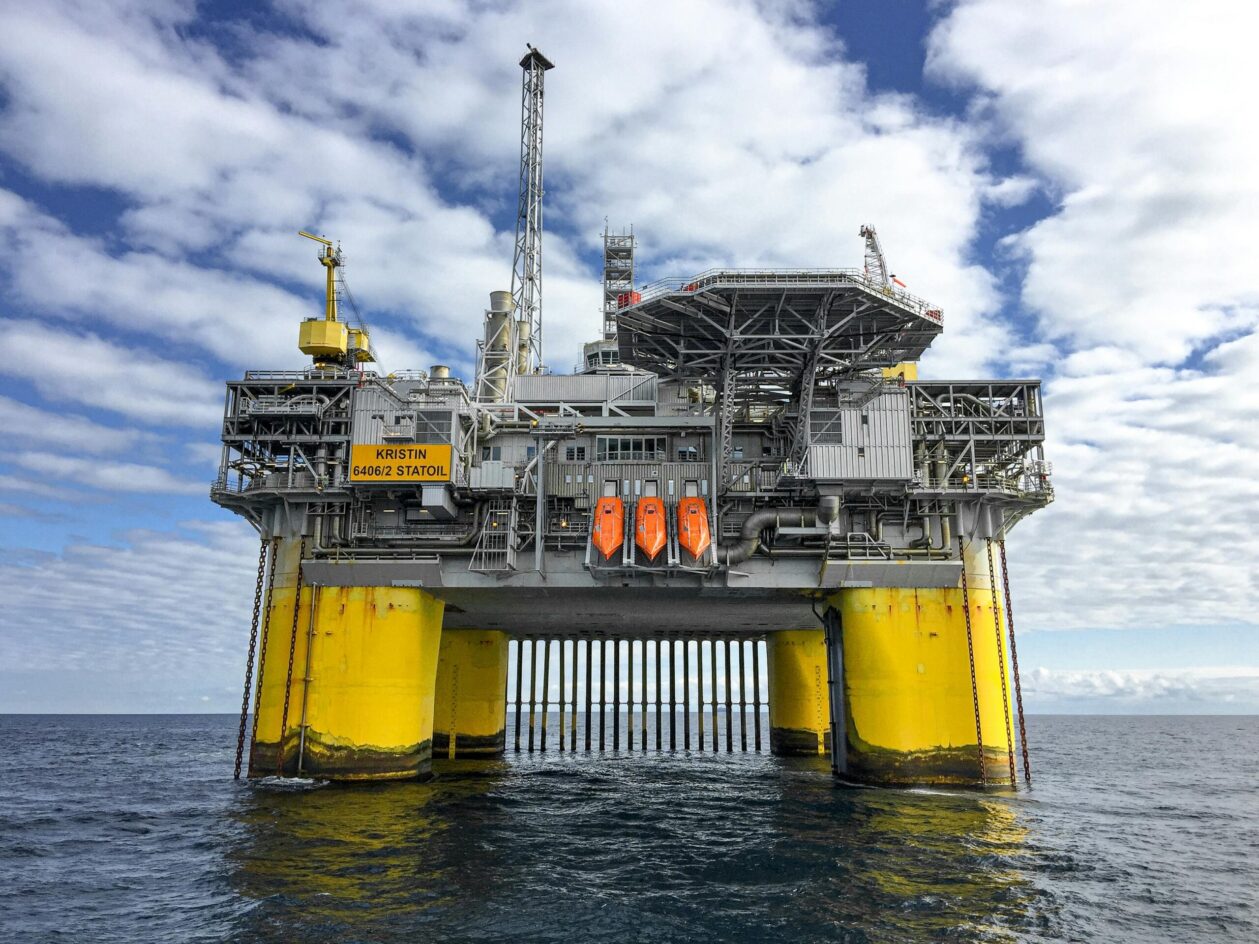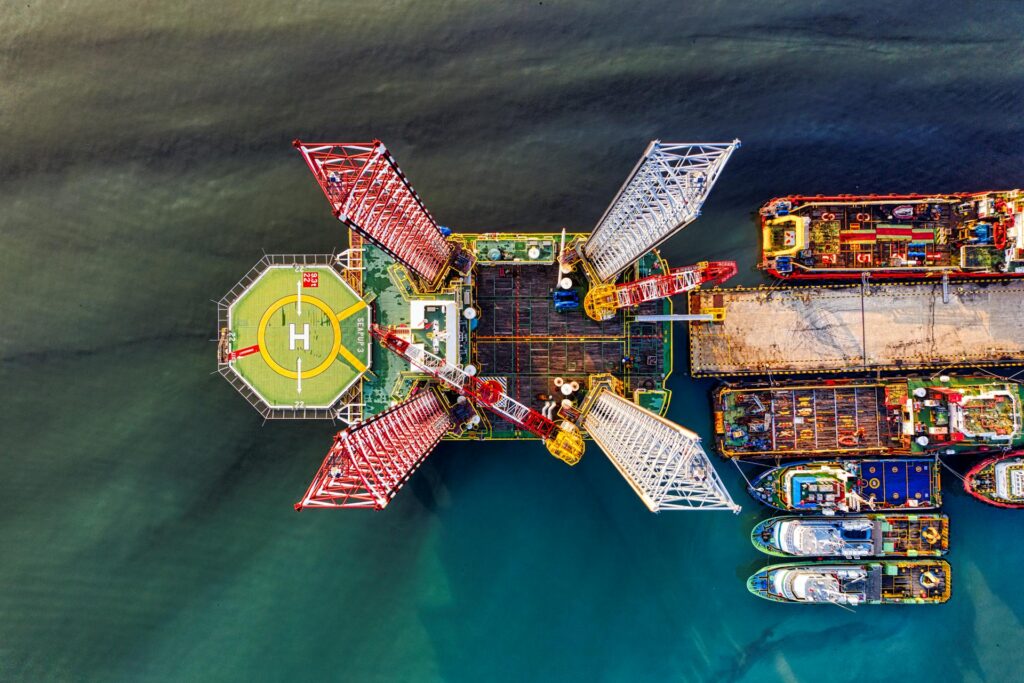
In this post, we’ll cover:
Introduction: A Day in the Life of an Offshore Crew Travel Coordinator

The sun had barely peeked over the horizon when Sarah’s phone buzzed with urgency. As the crew coordinator looking after offshore crew travel for a large offshore player, she knew that every call could mean the difference between smooth operations and costly delays.
“Sarah, it’s Jack. My flight’s been cancelled, and I’m supposed to be on the rig by tomorrow!” The panic in the crew member’s voice was palpable.
Sarah took a deep breath, her mind already racing through contingencies. “Don’t worry, Jack. I’m on it.”
Her fingers flew across the keyboard, sending a rapid-fire message to Mia, their dedicated travel agent. Within minutes, her phone rang.
“Morning, Sarah,” Mia’s cheerful voice came through. “I saw your message. Let’s get Jack where he needs to be.”
As they spoke, Sarah could almost see Mia’s expert hands navigating through booking systems, checking flight availability, and coordinating with ground transportation.
“Got it,” Mia announced triumphantly. “I’ve rerouted Jack through a different hub. He’ll arrive at the heliport with an hour to spare.”
Sarah smiled, relief washing over her. “You’re a lifesaver, Mia. I’ll let Jack know.”
As she hung up, Sarah reflected on the intricate dance of offshore crew travel coordination. It was a world where flight schedules, visa requirements, and rig rotations collided with unpredictable weather and ever-changing operational needs.
In this high-stakes environment, mastering travel planning wasn’t just about booking flights and hotels. It was about understanding the rhythm of the offshore industry, anticipating challenges, and crafting flexible solutions.
In this blog, we dive into the art and science of offshore crew travel planning, where every successful journey is a testament to the unsung heroes working tirelessly behind the scenes.
Global Offshore Crew Travel: Navigating a Sea of Logistical Challenges

Offshore operations in the oil and gas industry are intricate, high-stakes endeavors that push the boundaries of human ingenuity and logistical prowess. According to the International Labour Organization, in the UK, approximately 120,000 people were employed in offshore oil and gas production as of 2022. However, this figure only scratches the surface. When we consider the number of people involved in other major oil-producing regions such as the Middle East, the Gulf of Mexico, and the North Sea, the total workforce balloons to several hundred thousand. This vast scale underscores the monumental challenge of crew management in the offshore sector.
The sheer number of personnel involved creates a complex web of logistical demands. Each worker requires precise travel arrangements, often to remote locations accessible only by helicopter or specialized vessels. Add to this the need for regular crew rotations – typically every few weeks – and you have a constantly moving puzzle of global proportions.
Moreover, the challenges extend far beyond mere numbers. Offshore work is inherently dangerous, with harsh weather conditions, isolation, and the ever-present risk of accidents. This necessitates rigorous safety protocols, extensive training requirements, and meticulous health checks for all personnel. Crew coordinators must ensure that every worker arriving on a rig is not only at the right place at the right time but also fully compliant with all safety and regulatory standards.
The international nature of the industry further complicates matters. Crews often comprise workers from multiple countries, each with their own visa requirements, work permits, and cultural considerations. Navigating this maze of international regulations requires expertise and constant vigilance.
Lastly, the volatile nature of global events – from geopolitical tensions to pandemics – can disrupt travel plans at a moment’s notice. The ability to rapidly adapt and find alternative solutions is not just a useful skill; it’s an absolute necessity in this field.
In essence, the scale of crew management in offshore operations is a testament to human organizational capability. It’s a daily triumph over geographical, logistical, and bureaucratic challenges, ensuring that one of the world’s most critical industries continues to function smoothly against all odds.
5 Tips for Overcoming Offshore Crew Travel Coordination Challenges
1. Mastering Crew Rotations
The sheer scale of offshore operations presents a formidable challenge. With several hundred thousand workers employed globally in offshore oil and gas production, coordinating crew movements is a monumental task. To overcome this challenge, implement crew management solutions systems that can handle rotations for both small and large-scale operations. For instance, specialized software can manage crew rotations for thousands of workers. These systems should also be capable of coordinating complex travel arrangements across multiple time zones and regulatory jurisdictions, while optimizing travel routes and timing to reduce costs and improve efficiency. For example, crew management software should be able to facilitate seamless coordination between crew coordinators, crew members and travel agents.
2. Ensuring Safety in High-Risk Environments
Offshore work is inherently dangerous, with harsh weather conditions and isolation increasing the risk of accidents. Develop comprehensive safety protocols and implement rigorous training programs. Utilize fatigue management systems integrated with crew scheduling software to ensure adequate rest periods. Use technology to ensure your crew managers gets alerts for expiring safety certificates. Consider implementing wearable technology to monitor crew fatigue levels in real-time, allowing for proactive intervention when necessary.
3. Navigating International Regulations
With crews often comprising workers from multiple countries, navigating the maze of international regulations is complex. Each worker may have different visa requirements, work permits, and health and safety standards to meet. Implement a centralized compliance management system. This should track all necessary documentation, certifications, and work permits for each crew member. Utilize artificial intelligence to stay updated on changing international regulations and automatically flag any compliance issues.
4. Managing Volatile Global Events Affecting Offshore Crew Travel
The offshore industry is particularly vulnerable to global events, from geopolitical tensions to pandemics, which can disrupt travel plans at a moment’s notice. Develop robust contingency plans and implement real-time monitoring systems for global events. Utilize predictive analytics to anticipate potential disruptions and prepare alternative solutions in advance. For example, during the COVID-19 pandemic, companies that had strong contingency plans were able to adapt more quickly to travel restrictions and quarantine requirements.
5. Optimizing Offshore Crew Travel Cost Management
Logistics costs account for a significant portion of offshore operational expenses. According to industry data, these costs make up 10-15% of operating costs for typical offshore oil or gas facilities and at least 17% for offshore wind farms. Implement comprehensive cost tracking and optimization systems. Use data analytics to identify cost-saving opportunities across all aspects of crew travel and accommodation. Consider bulk negotiations with travel providers and implement a standardized per diem system. Companies that have implemented such systems have reported cost savings of up to 20% on their logistics expenses.
Conclusion
Effective offshore crew travel coordination is a multifaceted challenge that requires a blend of strategic planning, clear communication, and leveraging of modern technology. By focusing on these key areas, crew coordinators can significantly improve operational efficiency, reduce costs, and enhance crew satisfaction.
As the offshore oil and gas industry continues to evolve, so too must the strategies for crew management. Staying informed about industry trends, continuously seeking feedback from crew members, and being adaptable to change are crucial for success in this dynamic field.
Remember, at the heart of all these systems and strategies are the crew members themselves. By prioritizing their well-being and professional development, coordinators can build a resilient, efficient, and satisfied workforce capable of meeting the challenges of offshore operations.

